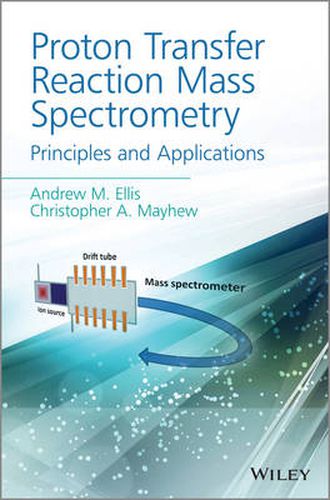Readings Newsletter
Become a Readings Member to make your shopping experience even easier.
Sign in or sign up for free!
You’re not far away from qualifying for FREE standard shipping within Australia
You’ve qualified for FREE standard shipping within Australia
The cart is loading…






Proton Transfer Reaction Mass Spectrometry (PTR-MS) is a rapidly growing analytical technique for detecting and identifying very small quantities of chemical compounds in air. It has seen widespread use in atmospheric monitoring and food science and shows increasing promise in applications such as industrial process monitoring, medical science and in crime and security scenarios.
Written by leading researchers, this is the first book devoted to PTR-MS and it provides a comprehensive account of the basic principles, the experimental technique and various applications, thus making this book essential reading for researchers, technicians, postgraduate students and professionals in industry.
The book contains nine chapters and is divided into two parts. The first part describes the underlying principles of the PTR-MS technique, including
* the relevant ion-molecule chemistry
* thermodynamics and reaction kinetics
* a discussion of ion sources, drift tubes and mass spectrometers
* practical aspects of PTR-MS, including calibration.
The second part of the book turns its attention to some of the many applications of PTR-MS, demonstrating the scope and benefits, as well as the limitations, of the technique. The chapters that make up the second part of the book build upon the material presented in the first part and are essentially self-contained reviews focusing on the following topics:
* environmental science
* food science
* medicine
* homeland security, and
* applications of PTR-MS in liquid analysis.
$9.00 standard shipping within Australia
FREE standard shipping within Australia for orders over $100.00
Express & International shipping calculated at checkout
Proton Transfer Reaction Mass Spectrometry (PTR-MS) is a rapidly growing analytical technique for detecting and identifying very small quantities of chemical compounds in air. It has seen widespread use in atmospheric monitoring and food science and shows increasing promise in applications such as industrial process monitoring, medical science and in crime and security scenarios.
Written by leading researchers, this is the first book devoted to PTR-MS and it provides a comprehensive account of the basic principles, the experimental technique and various applications, thus making this book essential reading for researchers, technicians, postgraduate students and professionals in industry.
The book contains nine chapters and is divided into two parts. The first part describes the underlying principles of the PTR-MS technique, including
* the relevant ion-molecule chemistry
* thermodynamics and reaction kinetics
* a discussion of ion sources, drift tubes and mass spectrometers
* practical aspects of PTR-MS, including calibration.
The second part of the book turns its attention to some of the many applications of PTR-MS, demonstrating the scope and benefits, as well as the limitations, of the technique. The chapters that make up the second part of the book build upon the material presented in the first part and are essentially self-contained reviews focusing on the following topics:
* environmental science
* food science
* medicine
* homeland security, and
* applications of PTR-MS in liquid analysis.